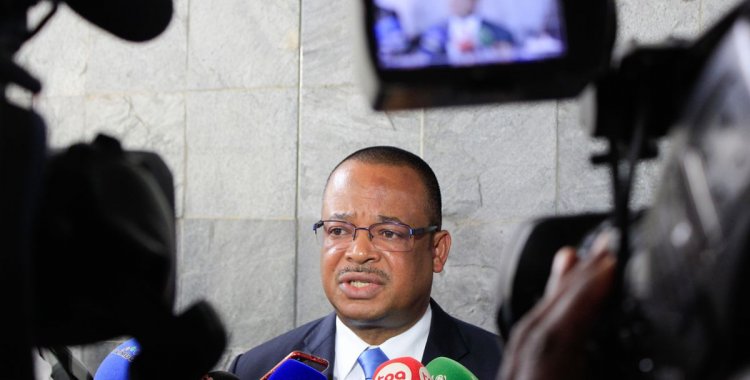Mota Liz, who was speaking to Radio Nacional de Angola, was surprised by the "social controversy that arose around this article," which she said was a replay of the 2010 State Security Crimes Law for the new Penal Code.
"I do not understand the reason for so much fuss, this rule has existed for ten years, as it will complete about ten years now in December since its entry into force in 2010, through the Law of Crimes against State Security, Law 23/10, the rule is there," he said.
According to Mota Liz, this rule has an intrinsic relationship with crimes in defense of honor, crimes against people's dignity, crimes against honor in particular, recalling that the Angolan law system follows the German-Roman model, the continental European, which also defend with criminal law intervention the honor and dignity of people.
"Our penal model is inspired by the Portuguese Penal Code and the final part was even made by a Portuguese criminalist, Professor Figueiredo Dias, and has a similar rule that defends the honor of the President of the Republic of Portugal and in several other latitudes, which with more or less difference, protect the same legal asset and have the same sentences. I don't know why voices are coming now, that this would be the greatest dictatorship, what dictatorship? Where do they get that from?", he questioned.
The magistrate stressed that "the legislator of 2010 wanted to give special protection to the figure of the President, who, although his honor is personal, but as the holder of a sovereign body needed special protection against the crimes of insult, defamation, slander, so that the function of President, essential for the achievement of the rule of law, is more or less preserved.
Mota Liz noted that this solution, which is not unique in Angolan criminal law, "raises some controversy even among criminal law thinkers.
"There are those who understand this protection too much and there are those who understand that it is not, because not only the President of the Republic is defended, the rule protects the other organs of sovereignty and national symbols," he stressed.
According to Mota Liz, the mistake of the commentators, "people who are creating a kind of hypochondria around it", is not to understand that this protection also finds limits in the realization of other rights, namely the right to press freedom, to criticism.
"It does not presuppose, at any moment, that there are no caricatures, as long as there is criticism of the actions of the sovereign body and the President of the Republic, it is not closed to criticism," he reaffirmed.
"What we want here is for this criticism to be objective and to be expressed in expressions, publications, writings, cartoons, it must be objective and reflect facts, actions, procedures, of the President of the Republic or any organ of sovereignty," he added.
For Mota Liz, "one cannot, in any way, throw the figure of the President of the Republic into the mud," although there is underlying protection of a fundamentally individual interest that is his honor.
"Since 2010 the rule has been in force, who was arrested for making a cartoon, for making a satire? Many are made for the current President as much as the previous one," he said.
The deputy attorney general considered that the rule is "a kind of qualified crime in relation to general crime, so the penalties in the crime against honor go up to six months, and can be aggravated by a third or half depending on advertising or use of the media, and here they go from three months to three years.
"And the norm is not even to relegate the insults in particular, in private, it's advertising, they have to be advertised," he said.
Mota Liz said that people knew the norm, that "those same lawyers - the bulk of them are lawyers who have been creating this social polemic - knew the norm of Law 23 and knew the norm in the original compilation that was made of the draft Penal Code, which went to public consultation.
"People were heard, no voice was raised at the time to say no and it was appreciated by the parliament, our representatives considered that yes," he noted.
Urged to exemplify what cases are subject to the penalty of this rule, Mota Liz indicated: "if you go back and a half saying that the President is a criminal, a criminal, he went to get money from a criminal organization, a series of things that are not true or that the President is seriously ill, that he is going to die".
"There is no other world, it's a false alarm, it doesn't scare, it doesn't hinder, it doesn't block, it doesn't make it impossible to carry out social criticism, to carry out freedom of the press, to publish cartoons, satires, it can always, but of course, within the limits established by law", he stressed.







